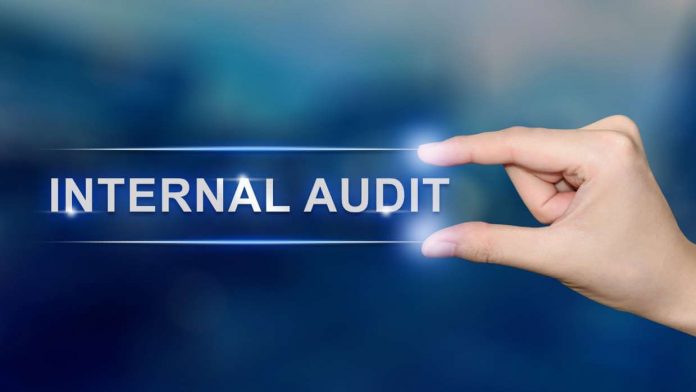This article is written by Ms Reet Balmiki from NALSAR University of Law. This is an exhaustive article conducting a comparative study of internal and external audits.
Table of Contents
Introduction
The idea of having someone review your work often seems intimidating and unsettling to many. Similarly, when we talk in business terms, auditing the work done by the company is often seen with fear and frustration. Despite being seen as unpleasant, companies continue to carry on routine audits because auditing is one of the primary and most important functions for a business to survive and flourish.
Timely auditing is the key for a business to ensure proper functioning and risk management in the organisation. It is an essential function to ascertain the accuracy of financial records provided by the organisation. It provides credibility to the company’s financial statements and ensures that all accounts are maintained truly and fairly. It also helps improve the company’s internal controls and systems.
Audits can be conducted internally by the heads of a particular department or externally by an independent auditor or firm. On this basis, general audits can be classified under two heads – internal and external audits. Internal and external auditing, though separate functions, occur in a complementary rather than conflicting manner. In addition, the process of the two types of audit is similar, which leads to further confusion between the two. While there might be some overlap between the two, there exists a fine line of difference between them. Before looking at the differences, we must first understand the meaning of the two types of auditing.
Understanding the meaning
Internal audit
The Institute of Internal Auditors (IIA) defines internal audit as an independent, objective assurance and consulting activity designed to add value and improve the organisation’s operations. It effectively examines the organisation’s internal controls and enables proper risk management, control and governance.
The main purpose of internal auditing is to periodically evaluate the organisation’s performance and identify the areas to improve in the future. They detect frauds, errors and improper conduct to be rectified by the organisation. By identifying such counterproductive activities, they ensure the proper and smooth functioning of the business. Internal auditors must conform with the IIA’s International Standards for the Professional Practice of Internal Auditing.
Though internal auditing is not obligatory, it plays a very important role in an organisation. It streamlines the regular operations, reduces the potential of fraud, provides a chance to identify and remedy the problems that might show up during external audits, saves time and money, ensures proper function of the regular business tasks and gives scope for improvement in the regular activities.
External audit
While an internal auditor primarily focuses on the non-financial aspects of the business, the external auditor is required to undertake an independent evaluation of the financial statements prepared by the organisation. They determine the organisation’s financial situation and provide their experienced opinion on the company’s financial statements. They also serve the shareholders by evaluating the soundness of the financial reports of the business. An external audit provides the business and the government with a check of the financial aspects of the organisation. The purpose of an external audit is to provide assurance to the investors, lenders, and other stakeholders that the company’s financial statements are materially correct and fair.
As the name suggests, external auditors are external to the organisation and have no vested interest in the business. They are guided by the international standards set by the International Auditing and Assurance Standards Board (IAASB).
The two types of audits are cohesive in nature. When conducted jointly by an organisation, they ensure the proper functioning and good governance. However, internal audit is distinct from external audit, and both have their own value. In order to better understand the two types of audits, it is essential to look at their areas of differences one by one.
Key distinctions between internal audit and external audit
There exist several differences in the role and boundaries of work performed during internal and external audits. They are often overlooked or misunderstood by the stakeholders. These differences are summarized below under specific heads.
Appointment of the auditor
- Internal audits are often undertaken by an internal employee of the organisation. In order to avoid any kind of bias, they evaluate the projects that they have not directly contributed to. However, several firms also outsource their internal auditors from independent firms.
- An external audit is performed by an independent firm or auditor. In order to ensure an unbiased and fair report, the organisations often bring in external auditors from a contracted third-party firm that has no vested interest in the organisation.
Reporting responsibilities
- It is required that the internal auditors be independent of the management of the organisation and report to the board, either directly or through the audit committee.
- The external auditors are entirely independent of the management or the body being audited and not responsible to the company. They are required to report to the shareholders of the company or the relevant legislative body.
Audit purpose
- The internal audit is required to enhance and improve the control and performance of the organisation. This can be done by timely detection of several fraudulent activities, risks in governance and management, wasteful spendings, and so on. It is thus designed to assess the key risks faced by the business and the effectiveness of managing these risks.
- The external audit is required to ensure a proper check of the financial conditions of the business along with proper assurance to the stakeholders. By examining the financial accounts, including the balance sheet, income statement, cash-flow statement, and expressing an opinion regarding the company’s financial state, they ensure fairness and truthfulness in their accounts. Therefore, the purpose of external auditing is to provide an independent examination and verification of the financial statements of the company.
Audit focus
- Internal auditors access the organisation’s health and check whether the practices undertaken are towards the objectives of the business. They also identify several risks that could impact these objectives and suggest ways to tackle them.
- On the other hand, external auditors focus on the business’s financial records and fair representation of their financial performance. They also analyze the financial soundness of the business and give their experienced opinion.
Audit objective
- Internal auditing is restricted to the management and organisation operations of the company. Thus, the objective is to review the routine tasks and suggest measures for improvement.
- External auditing aims at verifying and analyzing the fiscal financial records of the organisation and ensure fairness.
Audit scope
- The management of the company defines the scope for the internal audits. They set the scope as per several factors affecting their business. There are several types of internal audits where managers can point to certain areas to be focussed on for the audits, thus limiting its scope.
- On the other hand, the scope for external audits is defined by a statute. In India, the scope of external audits and the special format to be followed for the report are laid down under the Companies Act, 2013.
Obligation and frequency of the audit
- Internal audits are not mandatory. Though it is optional to conduct these audits, it is highly advisable to conduct them regularly. In practice, they are conducted throughout the year to ensure routine and periodical checks of the continuous business activities.
- The external audits are mandated by a statute. Since their main objective is to evaluate the company’s financial statements, these audits are conducted at the end of the year or quarter.
End-users of the audit report
- The internal audit report is mainly used by the management of the company to identify the errors in the daily practices and rectify them before they are detected in the external audit.
- The external audit report is mainly used by the shareholders, the public, and several other stakeholders to determine the soundness of the financial position of the company.
Auditor’s skills
- Due to the differences in the objectives and purpose of the internal and external audits, the requirement of skills by their auditors also differs. Internal auditors are generally interdisciplinary and come from a variety of professional backgrounds.
- On the other hand, external auditors are certified, accountants or government officials. They are well aware of the areas of accounting, finance, tax and compliance.
Auditing standards
In order to ensure that the purpose of conducting an audit is fulfilled and to avoid bias, it is required that the auditors follow certain principles and standards for both internal and external audits. However, these standards differ for the two types of audits.
Internal auditors are required to comply with the standards set out by The Institute of Internal Auditors for the Professional Practice of Internal Auditing. External auditors in India are required to conform with the standards set by the Institute of Chartered Accountants in India to ensure quality control and proper auditing and reviews.
While the purpose, focus, scope and outcomes vary, the internal and external auditors often share their results to improve the outcome of the audits. To understand the compatibility between the two, it is essential to look at the areas of overlap between the two.
Coordinating internal and external audits
Despite the interest, roles and responsibilities of the two audits being distinct, they often overlap at some point. These overlaps include effective analysis of transactions, becoming intimately familiar with an organisation’s governance, risk management, and internal control systems, and sharing and developing accurate final reports. Due to the existence of these overlaps, ensuring appropriate and regular communication and sharing of information between the two audits benefits the organisation. It also avoids duplication of the same data and improves the scope and quality of the audit.
Both internal and external audits play a significant role in the effective governance and functioning of the organisation. It is highly recommended that all firms conduct regular internal audits to keep the business activities under check in addition to external audits. This indicates that in order to ensure the best results, both these audits must be conducted by the organisations.
Therefore, despite the several distinctions between the two kinds of audits, they are not in conflict with each other. Rather, they are complementary to each other. This means that in order to ensure effective governance of the organisation, both the audits are crucial and must meet at some point and work together.
External auditors might utilise the wide-ranging understanding of the organisation’s activities and risks mentioned in the internal auditors’ report. This will help the external auditor to better and clearly understand the business functions and the areas prone to risk. Internal auditors and ensure their report is simple and precise. They can also provide regular suggestions to avoid certain risks.
However, it is essential that the internal and external auditors must maintain clear boundaries and preserve independence and objectivity to ensure the purpose of the audit is fulfilled in the right manner. Keeping clear boundaries between the work and scope of the audits also ensures that the outcome of the audits are distinct and do not overlap. This ensures that the quality of the audits is not compromised due to coordination between the two audit types.
Conclusion
Auditing is an essential task and the key to improvement and good governance in an organisation. While the internal and external audits vary in several aspects such as scope, functions, uses, objectives, etc, they do not work in isolation. Though internal auditing is voluntary, it is highly recommended that the organisations undergo both types of auditing to ensure maximum benefits from the process.
The two kinds of audits often demand communication and coordination as they both have their own individual value and expertise. Due to having different objectives and expertise, they complement each other’s functions and increase the quality of the audits. However, in order to ensure independence, they must work according to the respective standards.
Therefore, there is a need for an appropriate sharing of information between internal and external auditors to develop a constructive relationship that benefits the organisation. Both types of audits, together, keep the organisation running effectively and efficiently.
References
- https://www.iia.org.uk/resources/delivering-internal-audit/position-paper-internal-audits-relationship-with-external-audit/
- https://businessdegrees.uab.edu/blog/internal-auditing-vs-external-auditing/
LawSikho has created a telegram group for exchanging legal knowledge, referrals, and various opportunities. You can click on this link and join:
 Serato DJ Crack 2025Serato DJ PRO Crack
Serato DJ Crack 2025Serato DJ PRO Crack











 Allow notifications
Allow notifications


